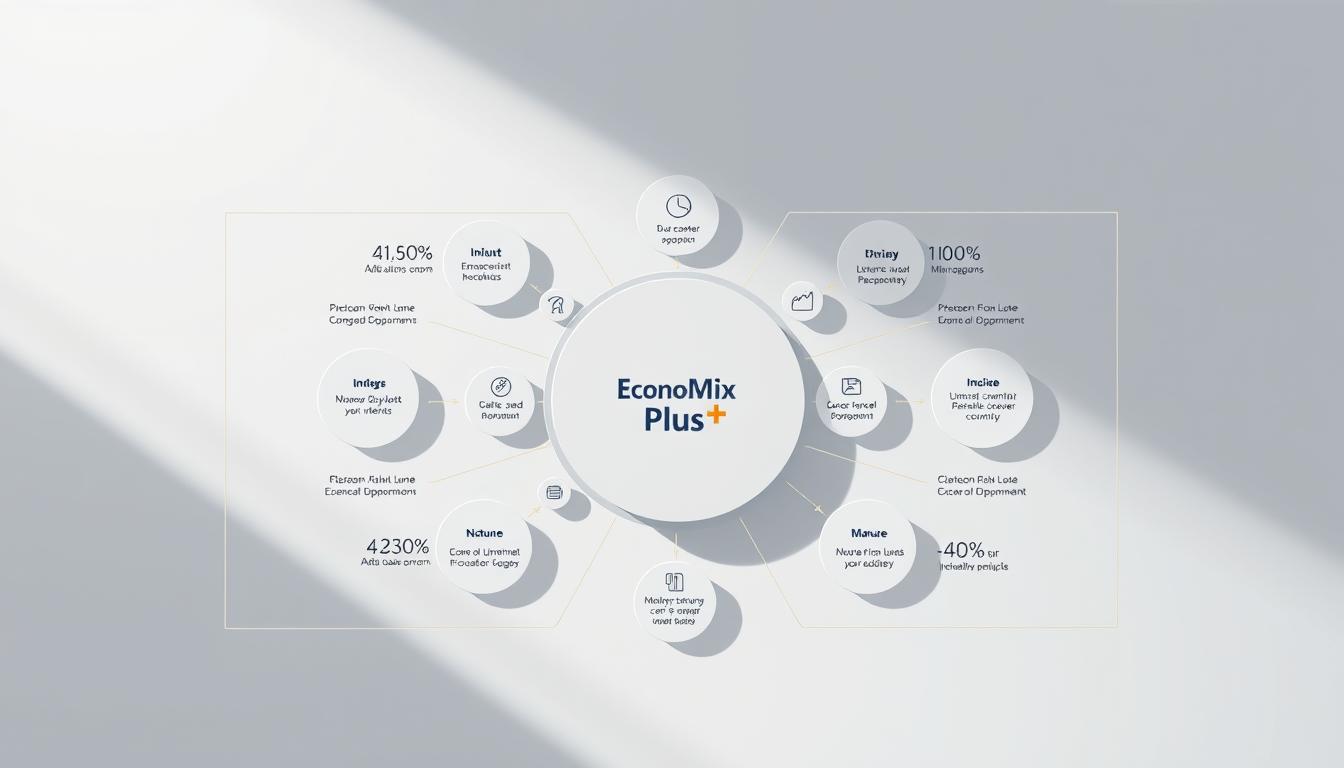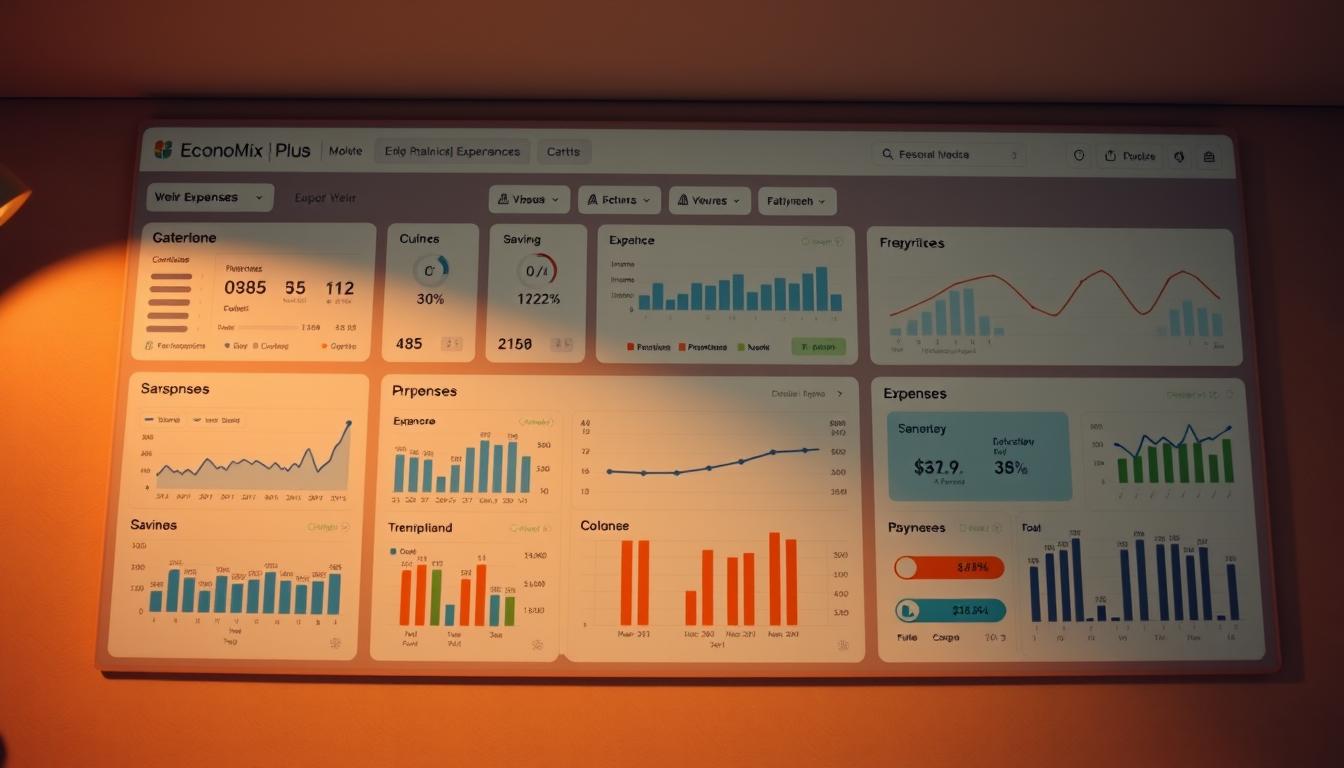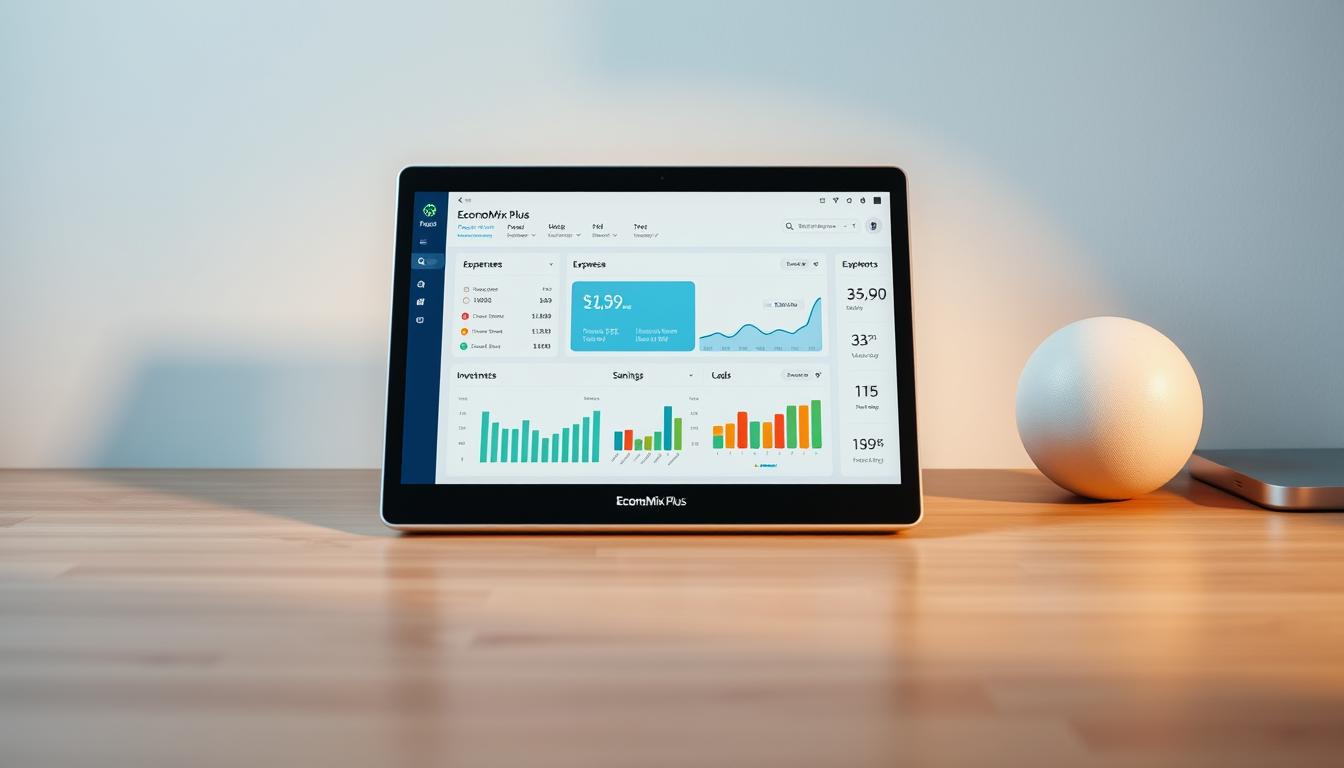Receiving an income increase is a significant financial milestone that brings both opportunities and challenges. As your income grows, it’s natural to feel tempted to relax your budgeting efforts and spend more freely. However, without proper budgeting, the extra funds can quickly disappear, missing the chance to bolster your savings and achieve your financial goals.
So, how can you strike a balance between enjoying your increased income and securing your financial future? By adopting a few simple yet effective strategies, you can optimize your budget and make the most of your hard-earned money.
Key Takeaways
- Understand the importance of maintaining a budget even after an income increase.
- Learn how to allocate your extra funds effectively.
- Discover strategies to avoid common financial pitfalls.
- Explore ways to balance immediate enjoyment with long-term financial security.
- Implement techniques to make your money work harder for you.
Understanding the Impact of an Income Increase
As your income grows, so do the possibilities for improving your financial stability and achieving your goals. An increase in income can be a significant opportunity to strengthen your financial foundation.
Recognizing the Opportunity for Financial Growth
With a higher income, you can strategically allocate the additional money to build wealth, reduce debt, and enhance your quality of life. This extra income can be a catalyst for achieving your long-term financial goals.
Avoiding the Common Pitfalls of Sudden Income Changes
Many individuals fall into the trap of proportionally increasing their spending with their income, missing the chance to make meaningful financial progress. It’s crucial to be aware of this tendency and manage your budget effectively to avoid unnecessary expenses.

Reassessing Your Current Financial Situation
Before deciding how to use your increased income, take a closer look at your current financial standing. This involves a thorough examination of your financial landscape.
Evaluating Your Existing Budget
Review your existing budget to understand your spending patterns and identify which expenses are essential versus discretionary. This step is crucial in determining where your money is going each month.

Identifying Areas for Improvement
Look for areas where your current budget may be inefficient or where you’ve been consistently overspending. Calculating your current savings rate and debt repayment pace will help establish a baseline for measuring the impact of your income increase. Assess whether your previous financial priorities still align with your current goals and values.
By doing so, you’ll be able to make informed decisions about how to allocate your increased income effectively and make the most of your financial situation.
How Can You Wisely Manage Your Personal Budget After Receiving an Income Increase
With a higher income, you have the chance to strengthen your financial position by making informed budgeting choices. Managing your personal budget effectively after an income increase requires a thoughtful approach to allocate your additional funds.
Creating a Balanced Allocation Strategy
A balanced allocation strategy is key to making the most of your increased income. This involves distributing your money across different areas to achieve both short-term satisfaction and long-term financial security.
Implementing the 50/30/20 Rule
The 50/30/20 rule is a simple yet effective budgeting method. It suggests allocating 50% of your income towards necessary expenses, 30% towards discretionary spending, and 20% towards savings and debt repayment.
50% for Needs
This portion covers essential expenses like rent, groceries, and bills. Ensuring you have enough for these necessities is crucial.
30% for Wants
Discretionary spending includes activities and purchases that enhance your lifestyle, such as dining out or hobbies. This allocation allows you to enjoy your increased income.
20% for Savings and Financial Goals
Allocating 20% towards savings helps you build an emergency fund, pay off debt, and work towards long-term financial goals. This step is vital for securing your financial future.

By following the 50/30/20 rule, you can create a balanced budget that supports both your current needs and future financial aspirations.
Setting Up a Robust Tracking System
As your income increases, setting up a robust tracking system becomes crucial for managing your finances effectively. This system will help you monitor your expenses and ensure that your spending aligns with your financial goals.
Digital Tools for Expense Monitoring
Utilizing digital budgeting tools and apps can significantly simplify expense tracking. These tools offer automated expense categorization, spending alerts, and visual reports that provide insights into your spending habits. By leveraging these features, you can gain a clearer understanding of where your money is going.

Creating Personalized Spending Categories
Creating personalized spending categories that reflect your lifestyle and priorities is essential. This approach allows you to identify areas where you can optimize your spending. Regularly reviewing your expense tracking data helps you spot trends and make informed adjustments to your budget.
| Category | Monthly Spend | Percentage of Income |
|---|---|---|
| Housing | $1500 | 30% |
| Food | $500 | 10% |
| Transportation | $300 | 6% |
By maintaining a disciplined approach to tracking your expenses, you can prevent financial waste and ensure that your money is working towards your financial objectives.
Establishing Spending Restraints
When you earn more, you have more freedom to spend, yet establishing restraints on your spending habits is vital for financial health. Setting maximum spending limits is a crucial step in this process.
Setting Maximum Spending Limits
By setting limits on discretionary spending categories, you create healthy boundaries that allow you to enjoy your increased income without overspending. This practice helps in effective budget management.
Creating Accountability Mechanisms
Regular budget reviews with a partner or financial advisor can reinforce your commitment to responsible spending. This accountability mechanism is key to successful financial management.
Practicing “Loud Budgeting”
“Loud budgeting” involves openly communicating your financial boundaries to friends and family, making it easier to resist social pressure to overspend. As one expert notes, “sharing your budget commitments can significantly impact your ability to stick to them.”

Prioritizing Emergency Fund Building
With an income increase, it’s essential to prioritize building your emergency fund. This fund acts as a financial buffer, protecting you from unexpected expenses or income disruptions. Most financial experts recommend saving 3-6 months of essential expenses, though your ideal amount may vary based on your specific circumstances and risk factors.
Determining Your Ideal Emergency Fund Size
To determine your ideal emergency fund size, consider your monthly expenses, dependents, and job security. If you have a family or are in a volatile industry, you may want to save more. It’s also crucial to consider any high-interest debt you need to pay off.
Strategies for Consistent Contributions
To build your emergency fund consistently, consider automating a specific dollar amount or percentage from your increased income to go directly into your fund. This way, you’ll ensure that you’re setting aside money before you have a chance to spend it. You can also review your budget to identify areas where you can cut back on unnecessary expenses and redirect that money towards your emergency fund.
Where to Keep Your Emergency Fund
Your emergency fund should be kept in a highly liquid account that allows immediate access without penalties. Consider keeping it separate from your everyday spending accounts to reduce the temptation to use it for non-essential purchases. You may also want to explore accounts at a different bank to keep it out of sight but still accessible. For more information on building your emergency savings, you can visit Community Bank’s guide.
- An income increase provides the perfect opportunity to establish or strengthen your emergency fund.
- Building your emergency fund should take priority over most other financial goals, except high-interest debt repayment.
- Once your emergency fund reaches your target amount, you can redirect those contributions toward other financial goals.
By prioritizing your emergency fund, you’re taking a crucial step towards achieving financial stability and securing your financial future.
Avoiding Lifestyle Inflation
With a rise in income, the temptation to inflate your lifestyle can be overwhelming, but it’s essential to resist it. As your income grows, so does the complexity of managing your expenses and maintaining a balanced budget.
Recognizing the Signs of Lifestyle Creep
Lifestyle inflation often begins subtly, with small upgrades or increased spending on entertainment and luxuries. However, it can escalate quickly, locking you into higher fixed expenses like a larger mortgage or car payments.
Strategies to Maintain Financial Discipline
To avoid the pitfalls of lifestyle inflation, implement a “wait and see” approach before making significant lifestyle upgrades. This allows you to assess whether these changes genuinely enhance your quality of life or merely inflate your expenses.
| Strategy | Benefit |
|---|---|
| Wait and See Approach | Reduces impulsive spending |
| Mindful Spending | Aligns purchases with financial goals |
| Gradual Lifestyle Increase | Proportional to savings rate |
Mindful Spending Practices
Practicing mindful spending involves questioning purchases in terms of their alignment with your financial goals rather than their affordability. This helps in maintaining financial discipline and avoiding unnecessary expenses.
Investing Your Additional Income Wisely
With a higher income, you have the opportunity to make your money work for you through smart investments. This involves exploring various investment options beyond traditional savings to achieve long-term financial growth.
Exploring Investment Options Beyond Traditional Savings
You can consider several investment vehicles, such as employer-sponsored retirement plans, tax-advantaged accounts, real estate, and market investments. These options help you identify the best fit for your financial goals and risk tolerance.
- Employer-sponsored retirement plans, like 401(k) matching programs, offer significant benefits.
- Tax-advantaged accounts can help optimize your investment returns.
- Investing in real estate or market investments can diversify your portfolio.
Diversification Strategies for Long-Term Growth
Diversifying your investments across different asset classes is crucial for protecting your wealth from market volatility. This strategy positions you for long-term growth and helps you achieve your retirement goals.
Retirement Planning Considerations
It’s essential to reassess your retirement savings rate following an income increase. Experts recommend saving at least 15% of your pretax income toward retirement, including any employer match. Consider maximizing your employer’s retirement benefits to boost your savings.
Building Flexibility Into Your Budget
As you navigate your increased income, building flexibility into your budget becomes crucial for long-term financial stability. This involves creating a financial plan that can adapt to changing circumstances without derailing your overall financial goals.
Creating a Discretionary Spending Account
One effective way to build flexibility is by creating a discretionary spending account separate from your main checking account. This allows you to transfer funds into it monthly and use them as needed, providing the freedom to enjoy spontaneous purchases without jeopardizing your financial plan.
Adjusting Your Budget for Seasonal Changes
Adjusting your budget to accommodate seasonal changes is also essential. This includes planning for predictable variations in expenses throughout the year, such as holiday spending or quarterly insurance payments.
- Implement a “buffer” in your monthly budget by planning to spend less than your full income, creating natural flexibility for months when expenses run higher than anticipated.
- Regularly reviewing and adjusting your budget categories ensures your financial plan evolves alongside your changing needs and priorities.
By incorporating these strategies, you can create a budget that is both flexible and resilient, allowing you to navigate financial challenges with confidence.
Maintaining Good Credit Practices
As your financial situation evolves with an increased income, maintaining good credit practices becomes crucial. Even with more money coming in, you may still need to rely on credit for significant purchases or unexpected expenses. Therefore, it’s vital to keep your credit score in check.
Monitoring Your Credit Score
Regularly reviewing your credit reports helps identify potential errors or fraudulent activities early on. This proactive approach allows you to dispute any inaccuracies before they negatively impact your credit history.
Strategic Debt Management
With a higher income, you can manage your debts more effectively. Focus on accelerating payments on high-interest debts while maintaining minimum payments on lower-interest obligations. This strategy can help you save on interest costs over time.
Using Credit Cards Responsibly
Using credit cards wisely can enhance your financial efficiency. Pay your balances in full each month and leverage rewards programs to maximize benefits. Consider setting up automatic payments to avoid late fees and negative marks on your credit report.
| Credit Practice | Benefit |
|---|---|
| Monitoring Credit Score | Early detection of errors or fraud |
| Strategic Debt Management | Savings on interest costs |
| Responsible Credit Card Use | Enhanced financial efficiency and rewards |
By maintaining good credit practices, you not only ensure your financial health but also open up more financial opportunities in the future. A strong credit profile can save you thousands in interest costs over your lifetime, making it a crucial aspect of your financial strategy.
Conclusion: Sustaining Financial Wellness Through Income Changes
After receiving an income increase, it’s vital to reassess your financial priorities and adjust your budget accordingly. To achieve lasting financial wellness, you must strike a balance between enjoying your increased income and securing your financial future.
By implementing strategies like the 50/30/20 rule, avoiding lifestyle inflation, and building a robust emergency fund, you can ensure a stable financial foundation. Regularly reviewing and refining your financial plan will help you stay on track with your financial goals.
Schedule quarterly financial check-ins to assess your progress and make necessary adjustments.














